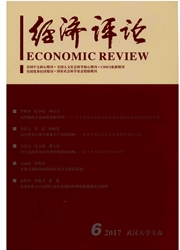

 中文摘要:
中文摘要:
本文首先构建关于实际外部财富、劳动生产率、贸易条件与实际汇率关系的跨时一般均衡理论模型,然后利用1981—2009年相关时间序列数据,检验中国实际外部财富、贸易条件以及国内外两部门劳动生产率对人民币实际汇率的影响。结果表明,从长期看,中国实际外部财富的急剧攀升会引发人民币实际汇率快速升值;中国贸易部门相对非贸易部门劳动生产率上升会促使人民币实际汇率升值,而国外贸易部门相对非贸易部门的劳动生产率提高则会降低人民币实际汇率,净效应表现为劳动生产率并不能解释20世纪80年代以来人民币实际汇率的长期波动;中国贸易条件对人民币实际汇率的影响不明显。短期内,中国实际外部财富对人民币实际汇率的作用关系与长期一致。根据上述结论,本文提出了保持人民币实际汇率相对稳定的政策建议。
 英文摘要:
英文摘要:
Based on an intertemporal general equilibrium model,using Johansen cointegrating technique and Granger causality test, this paper investigates the relations between China' s real external wealth,terms of trade,labor productivity and RMB real exehange rate from 1981 to 2009. Empirical test shows that in the long run, increasing quickly in China' s real external wealth leads to RMB real appreciation significantly. Relative Labor Productivity of China' s tradable sector is related to RMB real exchange rate positively. But relative labor productivity of foreign tradable sector is related to RMB real exchange rate negatively. Net effect of labor productivity on the RMB real exchange rate is weak. There is no causal relation between China' s terms of trade and RMB real exchange rate. In the short run,the relationship between China' s real external wealth and RMB real exehange rate is same as the longrun relationship.
 同期刊论文项目
同期刊论文项目
 同项目期刊论文
同项目期刊论文
 期刊信息
期刊信息
